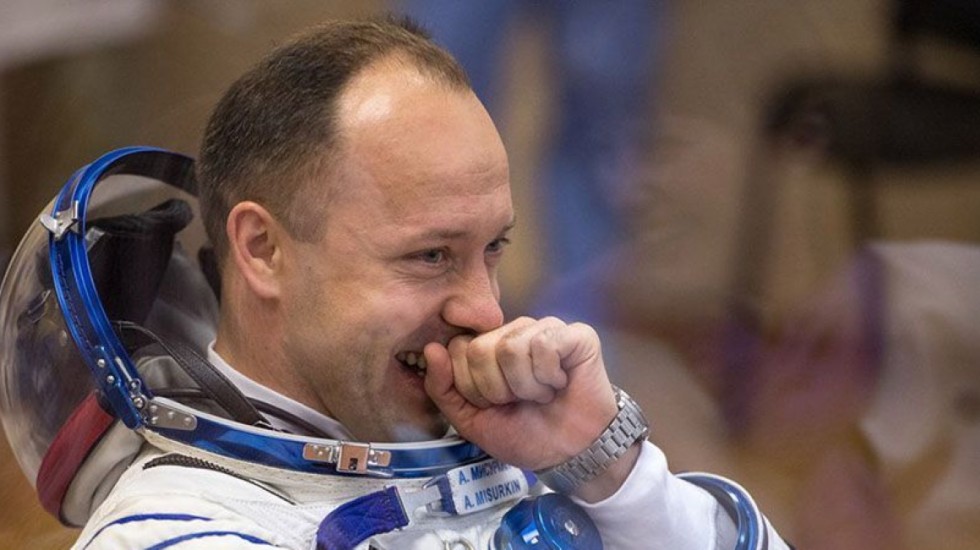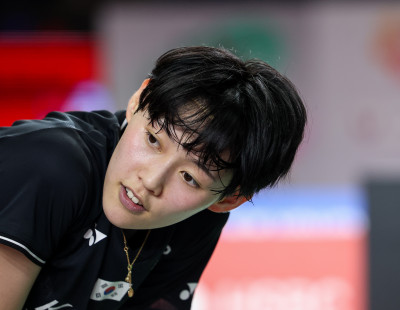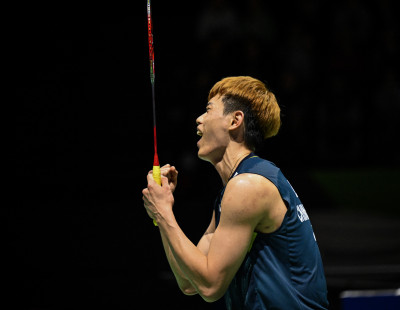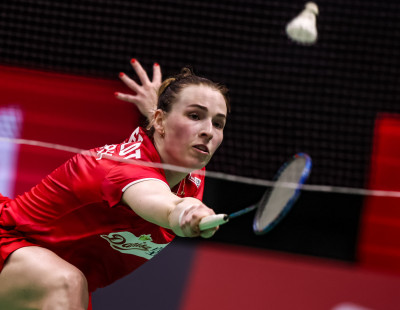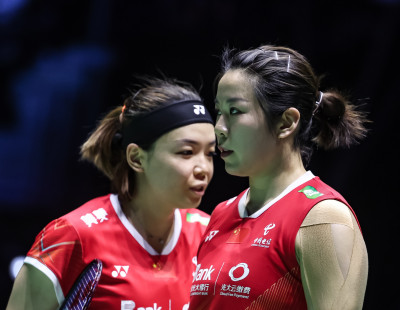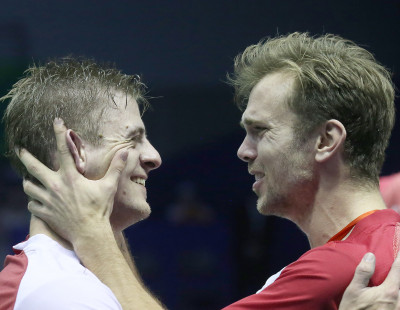The frustration of being socially isolated must be getting to badminton fans – as everybody else – but it’s likely very few would have the experience of being as isolated as the Russian cosmonaut and badminton fan Alexander Misurkin, who spent over 334 days in space.
Misurkin, Commander of the International Space Station (ISS) for Expedition 54, spent a total of 334 days, 11 hours and 29 minutes during his two flights aboard the ISS, which is the remotest outpost of humankind.
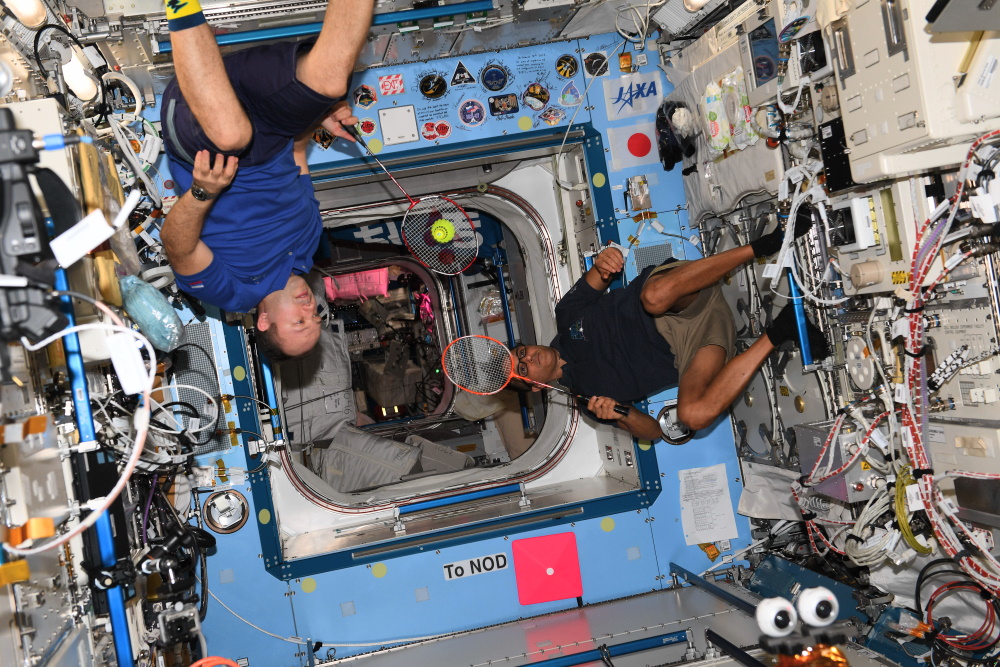
Playing the game on a module in the ISS.
Quite interestingly, Misurkin made history for initiating the first badminton game outside earth – which he did on board the ISS involving another cosmonaut and three astronauts. The game was played in February 2018.
As one of the founders of the Badminton Federation of Orel and champion of the ‘Star City’ tournament held on Cosmonautics Day, Misurkin has had a deep bond with badminton for many years.
One of the biggest challenges facing space crew is psychosocial stress due to living and working in relatively cramped conditions, and being isolated from family and friends for prolonged periods. Misurkin has three pieces of advice for those struggling with social isolation and how to emerge unscathed.
“The first one is active life position. In space flights and even now, I have a lot to do,” says Misurkin. “Even when I have to stay isolated in my apartment I don’t have enough time for everything that I would like to do. The first important thing is to keep yourself busy, even if you are isolated.”
Misurkin recommends taking a fresh look at one’s goals and everyday activities, to establish new goals if necessary, and to chart out better ways of reaching those goals. “Time to think, time to find better strategies, time to be really clear about what you really want,” he says.
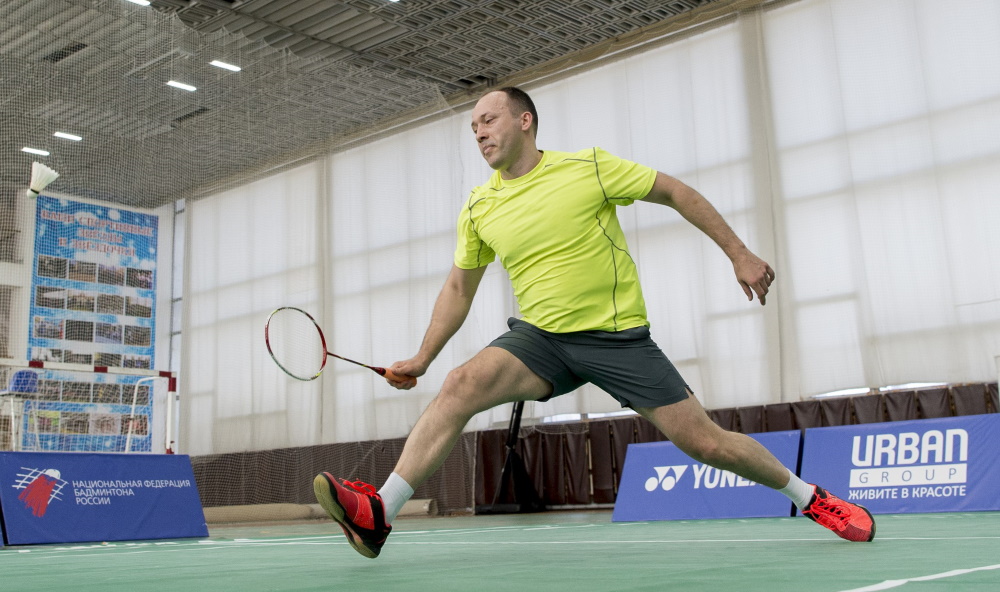
Alexander Misurkin is a keen badminton player.
He cites the example of his work with the local badminton federation, which he takes up despite various other tasks that he is required to accomplish.
The second piece of advice, he says, is “negative motivation”.
“In space, it is clear for everyone – if you go out, it will kill you.
“Now that you’re in quarantine, it’s kind of the same, to stay at home, this time it’s much safer than to go out, and if you talk to yourself that to go out means danger for yourself and for your family, it might help you to stay in an isolated place much easier.”
Thirdly, he recommends being conscious of “energy efficiency”.
“If you realise that you cannot change something – for example, if you cannot change staying at home during isolation, you need to create your schedule in such a way, you need to make it much more comfortable than it might be. For example, in space I changed a lot of my food, I changed the time and way of working on my body, which really helped me spend much lesser energy than if I followed standard procedure. It helped me to spend a lot of time in an isolated place.
“And if you seriously think about your way of life in isolation, if you take some time for work, and if you create some time for relaxing, it takes some energy to think about it and do it. If you work on it, it will work for you.
“So there are three things: active life position, negative motivation, and energy efficiency.”
Having outlined the mindset required to handle isolation, Misurkin emphasises physical activity, no matter how isolated one is.
“On board the space station, there is possibility for physical exercise – we can run, we can ride on a cycle, we have exercise machines. I did all of this, but I missed badminton very much. In space, physical activity was not only necessary to stay in good health, it also was a way of mental relaxation, because you can think of something else, to separate it from routine operations in an isolated place.
“Especially now on the ground, even when I keep myself busy with a lot of activities – most of them are mental activities over the internet, such as reading, answering, responding, and a lot of talking – it’s not all about physical activity. So now on the earth, it’s critical to have physical activity to keep yourself in good health and to let your brain some relaxation from its routine operations. Give some rest to your brain.”
Misurkin suggests playing modified versions of the game suitable for limited space.
“The National Federation of Russia started a project called Badminton Health, and our local city federation participated in this. We made some short videos on how we can start with badminton even in less space in an isolated apartment, and that can be a part of our physical training in isolation. It’s not completely like a real badminton game, but it helps to get some relaxation, and for the eyes to protect your vision. It does help one to stay in good mood and in good shape.”
Also read:


















